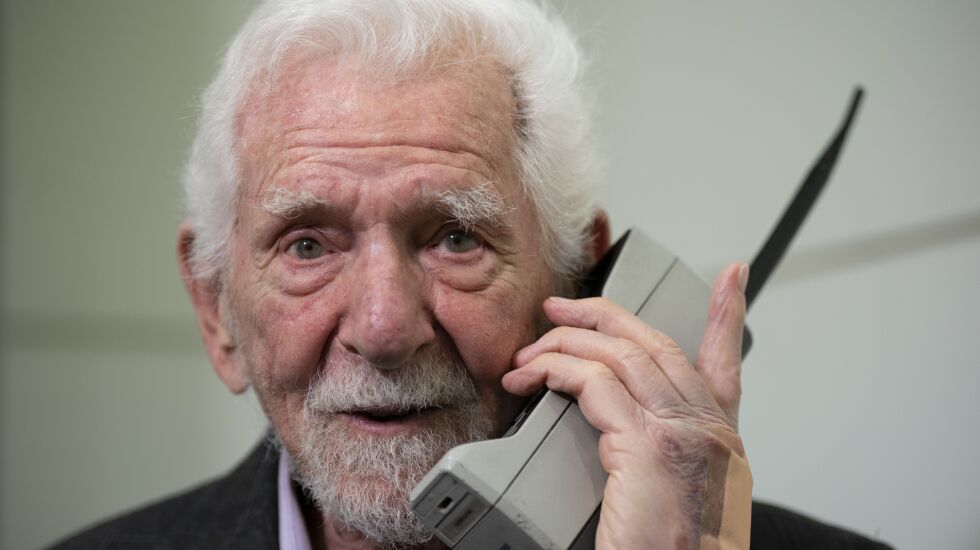
BARCELONA, Spain — Holding the bulky “brick” cellphone he’s credited with inventing 50 years ago, Martin Cooper talks about the future.
Little did he know when he made the first call on a New York City street from a heavy Motorola prototype that our world would come to be encapsulated on a sleek glass sheath where we search, connect, like and buy.
The inspiration for Cooper’s cellphone idea wasn’t the personal communicators on TV in “Star Trek” but the comic strip detective Dick Tracy’s radio wristwatch.
He’s optimistic that advances in mobile technology will continue to transform lives but worried about risks smartphones pose to privacy and young people.
“My most negative opinion is we don’t have any privacy anymore because everything about us is now recorded someplace and accessible to somebody who has enough intense desire to get it,” the 94-year-old said in an interview in Barcelona at MWC, the Mobile World Congress, the world’s biggest wireless trade show, where he was getting a lifetime award.
Cooper said he thinks advances in cellphone technology can further revolutionize the world.
“Between the cellphone and medical technology and the Internet, we are going to conquer disease,” he said.
Cooper made the first public call from a handheld portable telephone on a Manhattan street on April 3, 1973, using a prototype device his team at Motorola started designing just five months earlier.
Cooper used the Dyna-TAC phone to famously call his rival at Bell Labs, owned by AT&T. It was literally the world’s first brick phone, weighing 2.5 pounds and measuring 11 inches.
Cooper spent the best part of the next decade working to bring a commercial version of the device to market.
The call helped kick-start the cellphone revolution.
“We had no way of knowing this was the historic moment,” Cooper said. “The only thing that I was worried about: ‘Is this thing going to work?’ And it did.”
Cooper said he’s “not crazy” about the shape of modern smartphones. He thinks they will evolve so that they’ll be “distributed on your body,” possibly as sensors “measuring your health at all times.”
Batteries, he said, might be replaced by human energy.
“The human body is the charging station, right?” he said. “You ingest food, you create energy. Why not have this receiver for your ear embedded under your skin, powered by your body?”
Cooper also sees a dark side to the advances, including the risk to children. One idea, he said, is to have “various internets curated for different audiences.”







